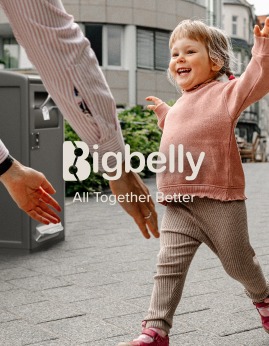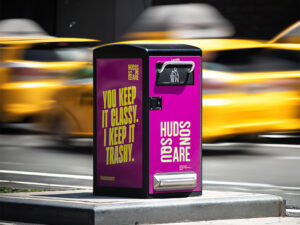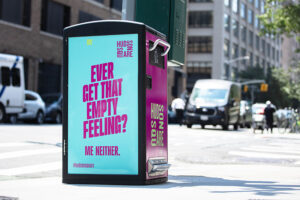From California to Washington and Colorado to Arizona, numerous cities, colleges, and private facilities installed and expanded their Bigbelly Smart Waste & Recycling System last year. Strong adoption by Western United States customers follows Bigbelly’s continued global expansion.
“While each customers’ needs are unique, Bigbelly helps to maximize productivity while supporting efforts to beautify public spaces, reduce environmental impact, improve recycling and litter containment, and even eradicate pest issues,” said Brian Phillips, Bigbelly’s CEO.
Bigbelly’s innovative technology and smart cloud-based tracking and reporting enable streets, parks, and facilities management teams to manage trash and recycling collection more efficiently. Hundreds of communities, campuses, and facilities across the Western US have Bigbelly’s smart waste management solution deployed, including:
- California State University (Los Angeles) – By 2026, Cal State LA hopes to achieve 90% waste diversion, and move toward zero waste by 2036. To help meet these ambitious goals, the university installed Bigbelly smart waste and recycling units across campus. Average monthly waste collection has already dropped from around 9x to 3-4x per bin per week. Committment to this innovative waste management solution further supports the university’s mission and commitment to sustainability.
- Los Angeles – Several council districts leverage 600+ Bigbelly systems that dot the Los Angeles area parks and recreation facilities and city streets including Council District Nine, which continued expanding its fleet in 2017. For more than two years, the LA Downtown Center Business Improvement District has leveraged their fleet of Bigbelly systems to reduce collections and act on their commitment to a cleaner Downtown LA.
- Long Beach, California – Over 100 Bigbelly systems are deployed along the waterfront and the city’s downtown district. Long Beach is the second largest city in the greater Los Angeles area keeping spaces cleaner with modernized waste management. Bigbelly helps Long Beach provide a consistent aesthetic while removing overflows and windblown litter.
- Union Square BID (USBID), San Francisco – The USBID Streetscapes and Services committees undertook an initiative to improve the cleanliness of the sidewalks surrounding the area’s hotels, retail storefronts, public plaza, restaurants, etc. After a successful pilot, in which all criteria were met or exceeded, the USBID expanded their Bigbelly footprint to realize considerable savings and ensured cleaner streets and public spaces in Union Square.
- University of California at Berkeley – A sponsor of the university’s efforts to achieve Zero Waste by 2020, Bigbelly is helping UC Berkeley to divert the 90% of waste continuously for 12 months needed to receive LEED certification. The 78 triple compacting stations capture compost, landfill, and bottles / cans. Bigbelly’s data-driven waste management system can monitor progress and report in real-time on the diversion rates of waste from the landfill.
- Yerba Buena Community Benefit District (YBCBD), San Francisco – YBCBD deployed Bigbelly in 2017 as another tech-savvy strategy to help keep streets and sidewalks clean. Regarding the program, San Francisco Supervisor Jane Kim commented, “Clean streets and sidewalks are critical to sustain our neighborhoods as vibrant and enjoyable places for residents, workers and visitors. […] The Bigbelly smart trash receptacles are another avenue towards a cleaner and more livable city.”
- Lakewood, Colorado – The largest deployment of Bigbelly bins in Colorado was installed across a community committed to recycling and sustainability. Over 70 new Bigbelly systems are now deployed in high traffic parks for an innovative way for visitors to dispose of recyclables and trash while in the parks.
- Puget Sound Naval Shipyard & Intermediate Maintenance Facility – This United States Navy shipyard covers 179 acres on Puget Sound in Bremerton, WA and uses Bigbelly to keep waste contained – out of the waters and away from the gulls. A fleet of double units promotes and captures both trash & recycling across a consistent bin footprint.
- Seattle Central College, Washington – Motivated by solving overflows on campus and introducing uniform, measurable recycling efforts, the college deployed 33 Bigbelly bins around campus. In just six months, monthly waste collections dropped over 88% (from 44.8 to 5.21 times / bin / month). The units also helped to divert over 55% of recyclables from landfills.
- Downtown Phoenix, Inc., Arizona – Prior to deploying the Bigbelly system, the city’s former public space recycling efforts were deemed ineffective. All collected recycling was sent to the landfill because the contents of the trash bins were contaminated with trash. In the year after installing their Bigbelly system, more than 47% of waste collected has been recycling which in turn has been diverted from the landfill.
These growing installations are in the company of other Western US cities, campuses, and facilities that leverage the Bigbelly system to modernize their waste management practices: From the numerous cities of Alhambra, Anaheim, and Culver City to Huntington Park, Walnut Creek, Santa Monica; Tacoma, Denver, and Reno to Richmond, Golden, and Compton; San Diego, Riverside, and Crested Butte. From the many facilities of King County Metro, Port of San Francisco and Ferry Building Marketplace, and APM Terminals to Kitsap Transit, Port of San Diego, and Florin Road Partnership. From several campuses across the University of California and Cal State systems, Northern Arizona University, and University of Washington Seattle and Tacoma to Chapman University, Western Washington University, College of Southern Nevada, and many more.
About Bigbelly
Bigbelly (www.bigbelly.com) is a prominent Smart City solution provider as the world leader of smart waste and recycling solutions. Deployed across communities, campuses and organizations in over 50 countries, the cloud-connected Bigbelly smart waste & recycling system combines smart, sensing, compacting stations with real-time software. Customers experience up to 80 percent collection reduction in addition to cleanliness, operational, economic, and environmental gains.



